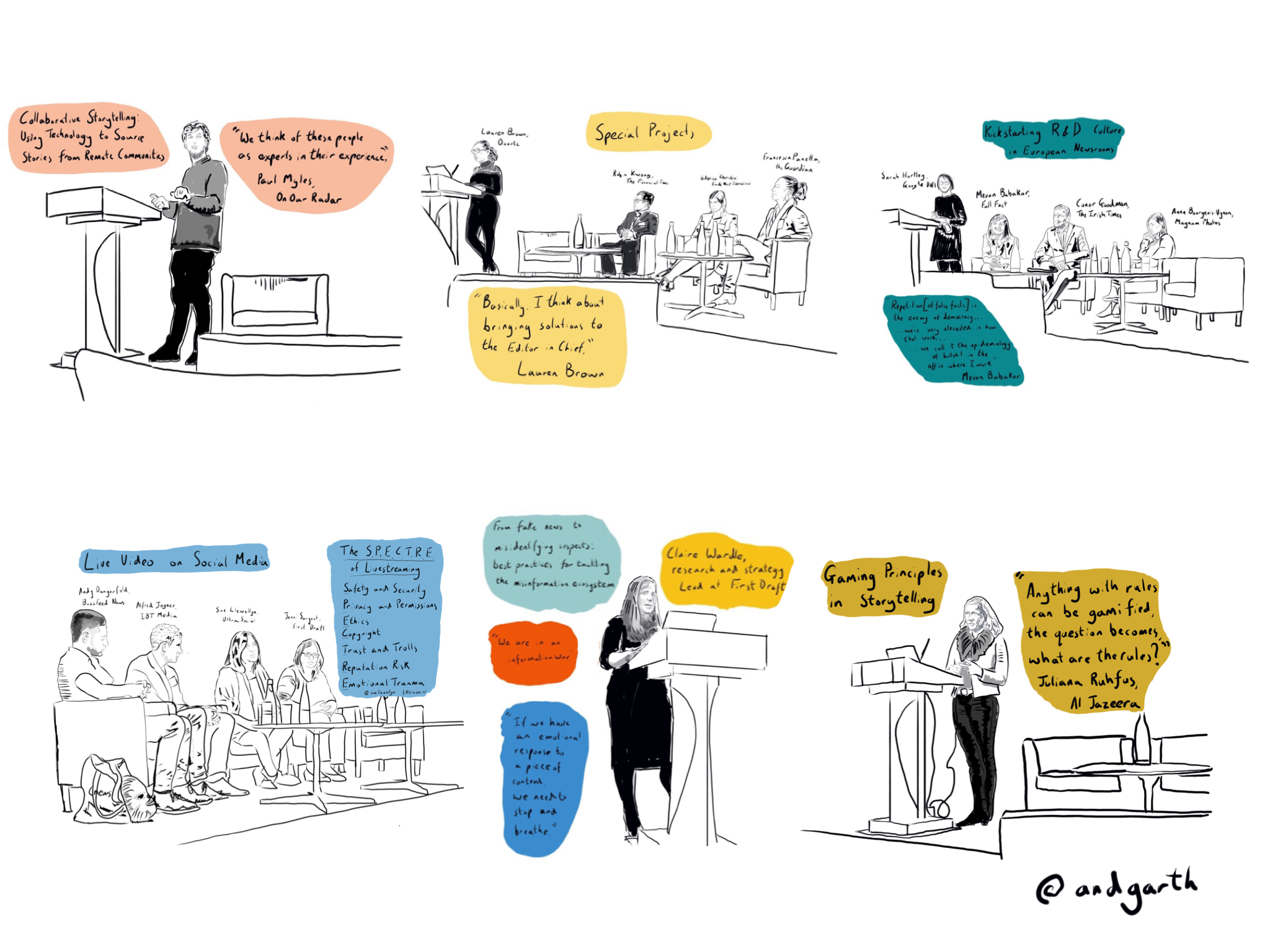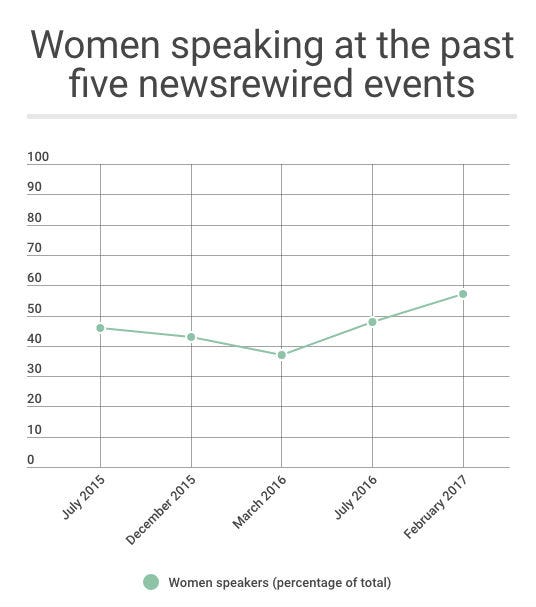
Since September 2015, I have been managing the programme for Journalism.co.uk’s newsrewired digital journalism event.
In that period of time, Journalism.co.uk has organised four full-day conferences, and one-half day event. I have also been involved with the organisation of one event prior to taking the lead (July 2015).
It’s International Women’s Day, and I want to take this opportunity to share some thoughts and some numbers about the gender balance at our events.
From the day I started as the event manager for newsrewired, the editorial team that works on the agenda (and on Journalism.co.uk editorial more widely) has consisted entirely of women.
We also attend many other industry conferences, so we are acutely aware of the gender balance in the programme and of the diversity of speakers on stage.
In the past, we have highlighted women working in a variety of innovative fields in the media, from social media to emerging technology, and spoke against the all male panel, like others in the industry (links here, here and here).
We haven’t had an all-male panel (manel) at newsrewired since before the current team has worked on the event. We were also pleased to hear from a male speaker we reached out to with an invite to one of our events last year that he would not participate if we had no women on the panel.
So to be transparent about where newsrewired stands on this, let’s get to the numbers. The following graph shows the number of women who spoke at our last five full day events, as a percentage of the total number of speakers.
The total number these percentages are calculated from includes speakers who participated as part of panels or individual “spotlight” talks, moderators, and sponsors who spoke in front of our delegates. It excludes any speakers who were only on stage for admin talk (e.g. in which rooms the sessions will take place in the afternoon, what the wifi password is, etc), as well as Journalism.co.uk staff.
I also excluded a half-day event we organised in October 2015, in an effort to compare like for like. We did not have a manel there either.
As the graph shows, we haven’t been very consistent. We have experimented with different formats for sessions, and for events that have fewer panels in the programme in favour of short talks and workshops led by just one speaker, it’s easier to lose track of the bigger picture (see our March event, which focused entirely on video).
It’s not about the topic of the event or panel either. At our last conference in February, we organised a panel about automation in the newsroom with more women than men on stage. We had a workshop on digital security for journalists led by a woman. You can see the agenda for that event here.
Those fields may be predominantly male, but it wasn’t difficult to find women to invite to share their expertise.
The general rule is that if you can’t think of any women to ask to speak at your event on a particular topic off the top of your head, you need to widen your search.
So if you are an event organiser reading this, the diversity of your programme starts with you. If you are a PR for an organisation receiving speaker requests, why not put forward more women to represent your organisation? If you want to avoid manels and have a woman speaking on your panel already, why not invite another? And remember that nothing says “we tried” in a sadder voice than a panel where all the experts are men, moderated by a woman.


